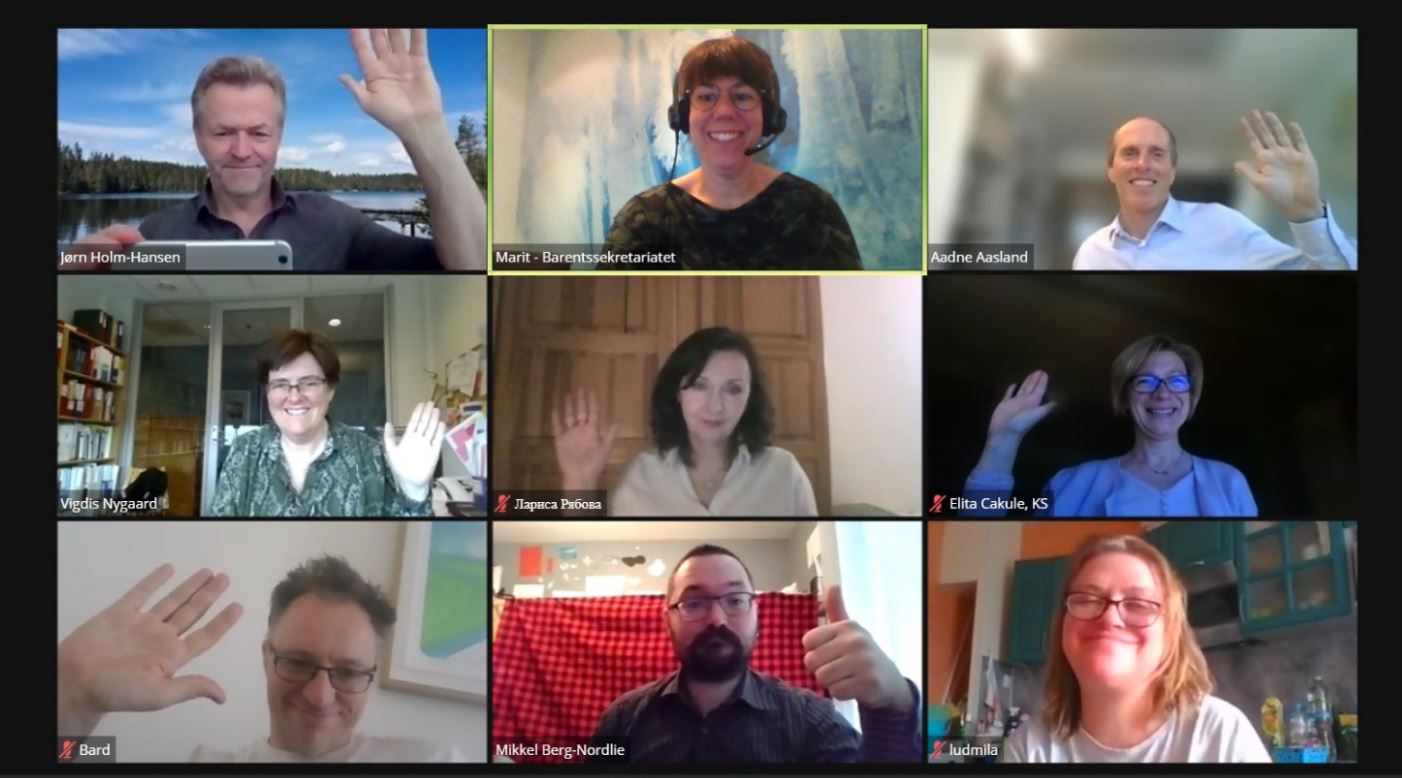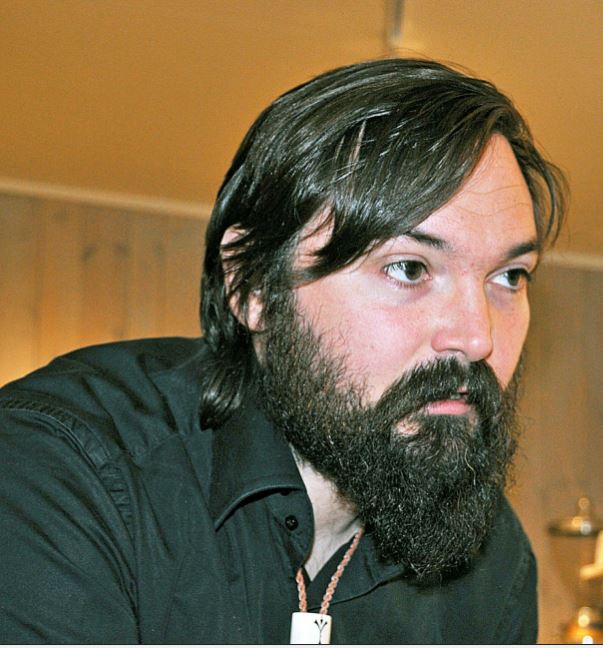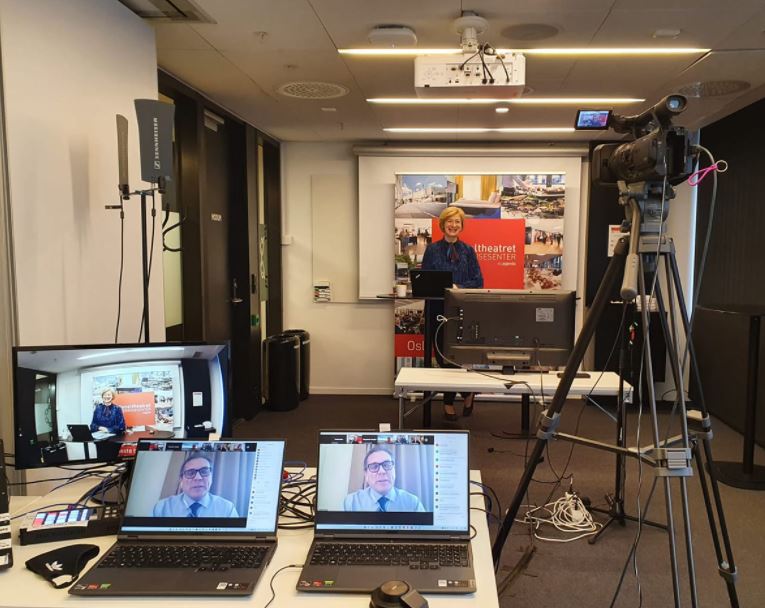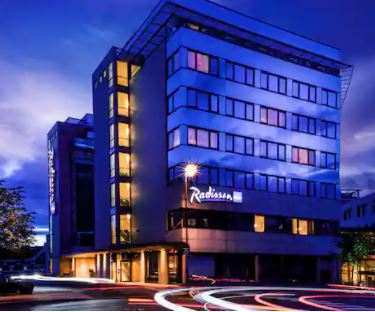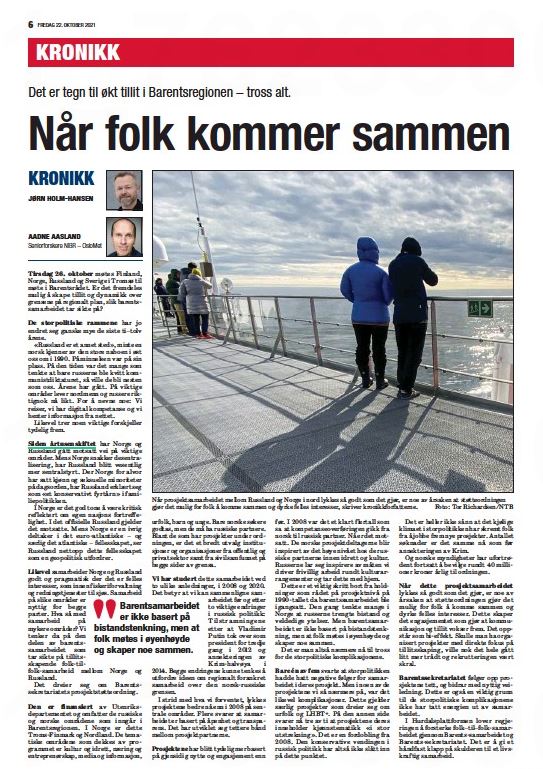The Re:Barents project had its kick-off workshop on 28 May 2021. Team members from all partner institutions were present. Participants were welcomed by NIBR Institute Director Geir Heierstad, Research Director Kristian Rose Tronstad and Project leader Aadne Aasland. Both project researchers and non-academic partner institutions expressed great commitment to the project and emphasised the importance of policy relevance, both for the partner institutions involved, but also for further development of the future collaboration between Norway and Russia on health and social welfare. The participants discussed theory, methodology and dissemination, division of tasks and responsibilities, and administrative procedures, including ethics. An important discussion concerned the selection of cases for in-depth study; a preliminary selection of cases has now been made. Team members expressed the wish to keep in close contact with key stakeholders both in Norway and Russia during the implementation of the project.
9 out of 12 team members captured at the end of the workshop:
